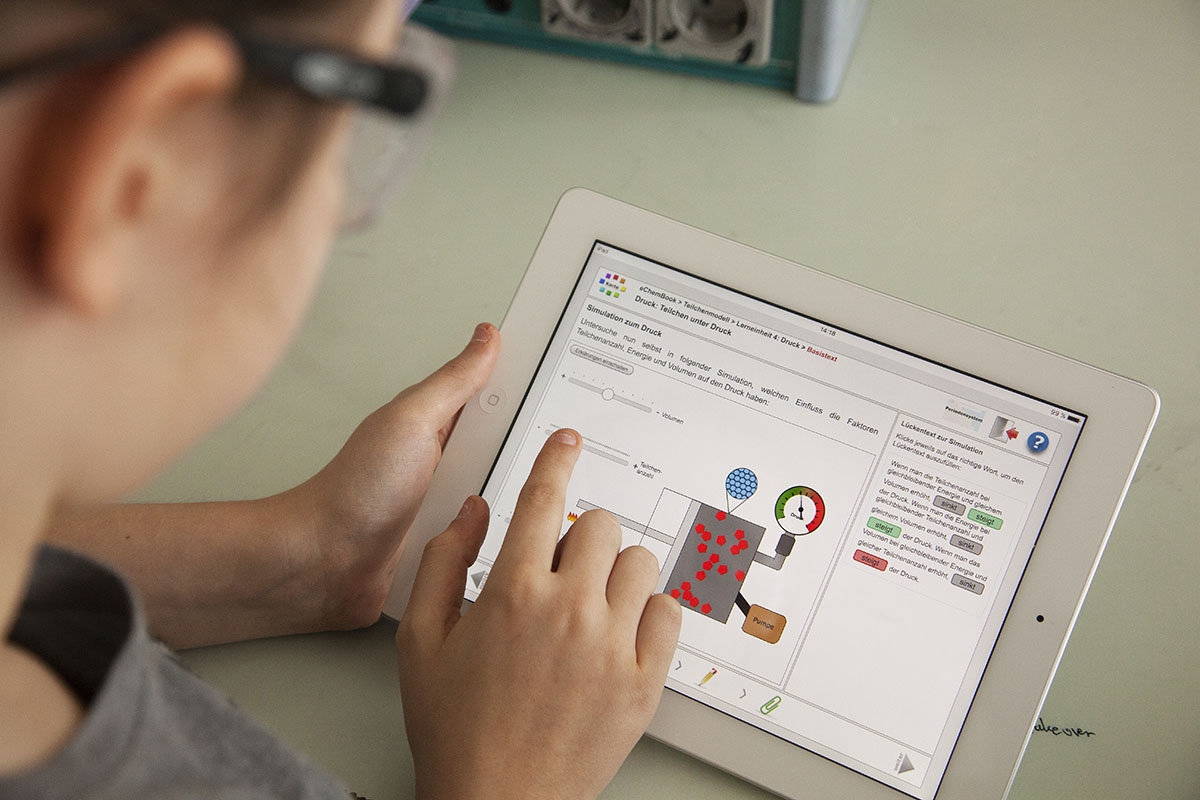In more and more German classrooms, notebooks, tablets & co are being used. Students search on the internet, present their results with the help of multimedia on digital whiteboards or use interactive simulations to understand complex scientific causal relations. However, both teachers and students have to deal with various challenges: When is a lesson that is conducted with the help of digital media a good lesson? How do I learn properly by using a simulation? How do I prevent being distracted or disoriented by the vast amount of information available on the internet?

The IWM researches how digital media can be used to complement and change the traditional model of teaching and learning arrangements in a way that is conducive to learning. This includes identification of characteristics of teachers and students that are important for successful learning with digital media. Once these are identified, their development can be supported with selective measures. To this end, the IWM is participating in the TüDiLab (Tübingen Digital Teaching Lab), among others. The TüDiLab is an institution of the Tübingen School of Education (TüSE) of the University of Tübingen. The TüDiLab simulates a classroom which is equipped with digital media that are typically used in schools, as well as with evaluation tools whose data enable a high temporal resolution analysis of real-life teaching and learning processes. Thereby, didactic media expertise is intended to be conveyed to future teachers. Furthermore, the TüDiLab enables process-oriented research on the effects of media-based teaching. Additionally, also in the context of TüSE, a new junior professorship for teaching and learning with digital media (in teaching methodology) was established at the University of Tübingen as well as at the IWM. The position is filled by Andreas Lachner.
The following examples give concrete insight into the IWM’s research activities:
- How should tablet-based digital schoolbooks be designed for science lessons [eChemBook]?
- How do digital media that stimulate exercise support numerical reasoning [Math with the mat]?
- Which properties of interactive learnsetting are helpful to gifted children but harmful to children of average ability [Promotion of children with exceptional skills]?]
- In what way can tablets be used so that they support constructive learning via drawing [Drawing as learn strategy]?
The IWM generates user-oriented knowledge that is important for the design of media-based lessons and of digital lesson material. In order to ensure the transfer of our results into educational practice, we cooperate with educational publishers and other producers of educational media and are involved in teacher training. At the same time, we present our research to user-oriented publications and at conferences.
